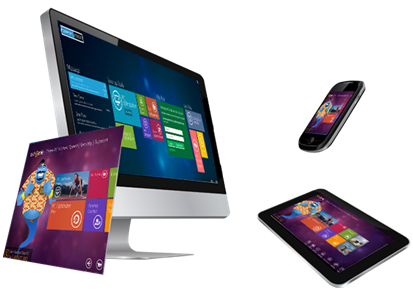 Understanding how a customer is using devices (e.g., a computer, the network) is a key step in delivering a better customer support experience. And device intelligence in the cloud makes it possible for support organizations to gain this understanding. Device intelligence gathers information associated with a customer’s device and network configuration and activity. With this insight, customer service agents can proactively suggest measures that help customers avoid problems, as well as recommend products or services that the customer will likely want or need. Now a confluence of new technologies and processes makes it possible to deliver a level of service that satisfies customers: support automation, superior knowledge management practices, predictive analytics, asset intelligence, and a unique customer support experience. All of this is enabled by the latest cloud technologies for cost-effective, superior support that opens the door to new revenue opportunities.
Understanding how a customer is using devices (e.g., a computer, the network) is a key step in delivering a better customer support experience. And device intelligence in the cloud makes it possible for support organizations to gain this understanding. Device intelligence gathers information associated with a customer’s device and network configuration and activity. With this insight, customer service agents can proactively suggest measures that help customers avoid problems, as well as recommend products or services that the customer will likely want or need. Now a confluence of new technologies and processes makes it possible to deliver a level of service that satisfies customers: support automation, superior knowledge management practices, predictive analytics, asset intelligence, and a unique customer support experience. All of this is enabled by the latest cloud technologies for cost-effective, superior support that opens the door to new revenue opportunities.
What’s the value of this device intelligence? It can set an organization apart. According to research, nearly two-thirds of the Best-in-Class (63%), which in their own classification means roughly the top tier companies, proactively notify customers of both positive (e.g., discounts, renewal opportunities) and potentially disruptive events (e.g., stock-outs, product recalls, service outages), as compared to only 28% of those that fall into the “All Others” category.
Put further into context: “…customers understand that issues will arise and products will break but it is the support activities (both proactive and reactive) that an organization puts in place which will determine if clients will remain loyal buyers or look for other providers.”
The key to device intelligence is responding to the signals being gathered – and ideally to do so in a streamlined, automated manner. That’s where the power of predictive analytics and a real-time sales recommendation engine comes into play.
Through our embedded support dock, we at iYogi gather information during the course of customer interactions, such as a user’s demographic details as well as how a user’s equipment is being used and how the network is behaving. Consider the example of a customer calling in to complain about a sluggish laptop. The device intelligence technology could determine, for example, that a customer’s router is malfunctioning or that a rogue machine is in the customer’s network.
We then apply predictive analytics and the sales recommendation engine to predict, for example, that a person falling into a certain customer segment is likely to buy a certain product at a certain time.
We also use this technology and insight to enable effective cross-selling and upselling. Our system prompts support agents when there’s an opportunity. For instance, suggesting a new hard drive to the customer with one that’s about to die, or a new antivirus subscription to replace one that just expired.
The beauty of this technology is that it gathers real-time information that makes it possible to identify opportunities without manually conducting discovery, such as by badgering the customer with a series of questions. And it doesn’t leave it up to individual agents to decide when to proactively warn customers of impending issues and suggest a timely product or service purchase. Instead, the system prompts the agent to introduce these issues into the conversation naturally and at the right time.
And the result is that the organization can increase its annual revenue per user (ARPU). For instance, perhaps a telecommunication provider’s customer support agent discovers that a customer owns five smart TVs but has only one cable connection. The agent can recommend that the customer add cable lines to take advantage of all the TVs. Or perhaps the device intelligence process uncovers that certain customers own Android phones. The marketing department could tap into this insight to run an Android-specific campaign to these individuals.
Here at iYogi, we’ve seen first-hand how device intelligence empowers an organization to grow. A $169.99 annual tech support plan was once the bread and butter of our operation. Using the power of device intelligence, we were able to increase ARPU by upselling Home Plans to cover the digital home at $299.99. Such measures have enabled us to keep our customers happy while allowing us to grow to 5,000 employees in less than five years.
Want to learn more about how to deliver superior support that opens the door to new revenue opportunities? The whitepaper can be accessed at http://www.digitalservicecloud.com/resources/white-paper
Submitted by Vishal Dhar, iYogi.
